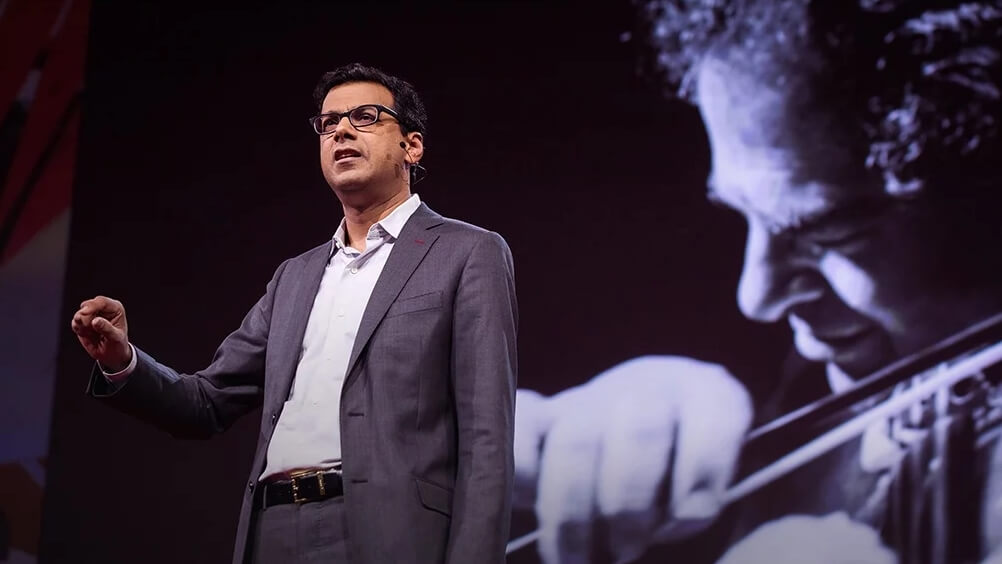Healthcare Hot Takes is Luma Health’s monthly rundown of healthcare innovations happening right now. Check out what the industry is thinking, reading, doing. This month’s main topic is the new healthcare initiative between Amazon, J.P. Morgan, and Berkshire Hathaway.

Healthcare professionals, we want to hear from you. If you work in healthcare, click this link, take our 10-minute survey, and get entered in our giveaway for a $100 Visa gift card.
After a long and arduous search, the new healthcare initiative between Amazon, J.P. Morgan, and Berkshire Hathaway finally has its man. Renowned surgeon and author, Dr. Atul Gawande, has been chosen to lead the much publicized venture and he hopes to bring his expertise in medicine and health policy in an aim to bring down healthcare costs for employees and families of the three entities.
As a general surgeon at Brigham and Women’s Hospital in Boston and a professor at both Harvard Medical School and the Harvard T.H. Chan School of Public Health, Dr. Gawande brings a wealth of education, experience, and professionalism to this challenging position. He also regularly writes pieces for The New Yorker and is an author of best selling books such as The Checklist Manifesto and Better. His Boston-based think tank, Ariadne Labs, focuses on ways to make healthcare more efficient by studying the behaviors of both hospitals and physicians. Dr. Gawande hopes to use much of what he and his team have learned over the years in this new role as CEO.
“I’m thrilled to be named CEO of this healthcare initiative. I have devoted my public health career to building scalable solutions for better healthcare delivery that are saving lives, reducing suffering and eliminating wasteful spending both in the US and across the world…
“…Now I have the backing of these remarkable organizations to presume this mission with even greater impact for more than a million people, and in doing so incubate better models of care for all.”
Dr. Atul Gawande
Luma’s Hot Take: We’re super excited to see what Dr. Gawande has in store for this venture! If anyone has the knowledge and expertise to make a real impact on the triple aim in healthcare (improving patient experience, improving health outcomes, and lowering healthcare costs), it’s him.
Amazon is flexing its muscle yet again and making another giant push into healthcare — this time, into the pharmacy space. With Walmart shuffling its feet in April amidst negotiations with PillPack, Amazon swooped in recently with a $1B offer and sealed the deal.
PillPack delivers prescriptions across the country in neat little packages, something that is right in line with Amazon’s current service offerings. With this deal, Amazon will receive pharmaceutical licenses in 49 states and be eligible to renew a deal with Express Scripts (currently the largest U.S. pharmacy benefit manager), allowing them to manage prescription drug benefits on behalf of health insurers throughout the country
Amazon is already working to disrupt healthcare with the aforementioned J.P. Morgan-Berkshire Hathaway initiative, and with this move, they hope to take aim at the $400 billion dollar pharmacy industry. News of the deal sent other pharmacy retailers stock plummeting, with CVS, Walgreens, and Rite Aid losing anywhere from 5 to 10% of their value.
Luma’s Hot Take: Amazon is truly making their mark felt on healthcare whether it be through strategic initiatives or pure acquisitions. It is refreshing to see a technology company with such vast resources and reach make such a strong commitment towards disrupting the healthcare industry in this country.

Download this eBook for more ideas on revenue recovery campaigns your practice can implement today.
Google published a study in May that showcased the promise of artificial intelligence software in healthcare applications. This software, known as a neural network, is able to learn and improve automatically by looking at data.
One example published was that of a woman with late-stage breast cancer who came into a metropolitan hospital with fluid in her lungs. After seeing two different specialists and getting a CT scan, the patient was given a 9.3% chance of death during her stay. This patient was then assessed by Google’s neural network – a total of 175,639 different data points. The algorithm concluded that the woman had a 19.9% risk of death. The patient ended up passing away a few days later.
Although a grim tale, this example shows the possibilities for Google’s AI to directly impact healthcare decisions. The ability for this neural network to ingest and go through a large amount of previously unsalvageable data is the real highlight here. Being able to mine through electronic patient data in an efficient and effective way will surely lead to less waste in healthcare and ultimately, to better health outcomes.
Luma’s Hot Take: As a company, we deal with large quantities of secure electronic patient data everyday, and we know exactly how big of a challenge interoperability is. With Google’s push into AI and the applications to healthcare, there are new possibilities to the amount of health related data that software will be able to digest, as well as analyze. The result will be more accurate conclusions and smarter healthcare decisions.






